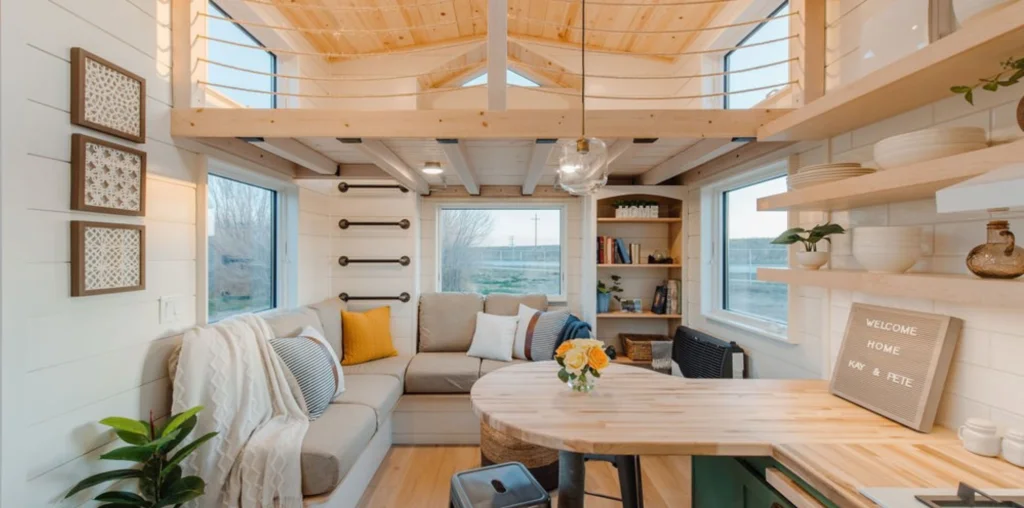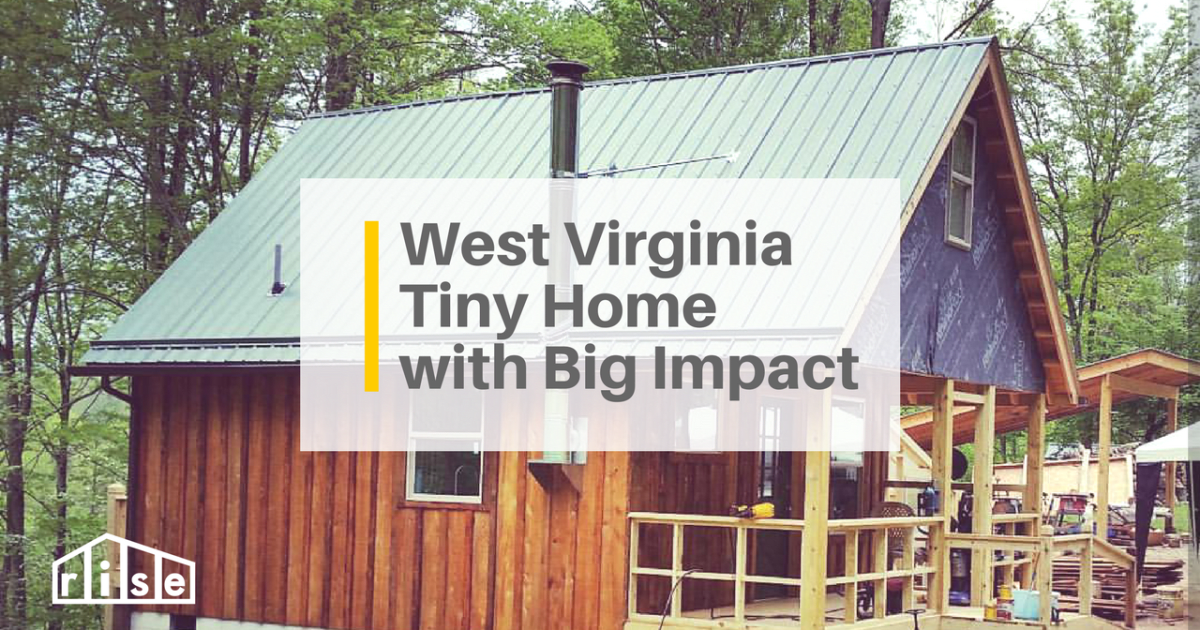Are you considering joining the tiny home movement in West Virginia but aren’t sure if it’s legal? Well, you’ve come to the right place! In this article, we will explore the legality of tiny homes in West Virginia and provide you with all the information you need to know before embarking on your tiny living adventure. From zoning regulations to building codes, we’ve got you covered. So let’s dive in and find out if your dream of living in a tiny home is feasible in the beautiful state of West Virginia!
Overview of Tiny Homes
Definition of tiny homes
Tiny homes are a type of alternative housing that are compact and efficient, typically no larger than 500 square feet. These homes are often designed to maximize space and functionality, making use of every square inch. They may be built on a foundation or on wheels, allowing for mobility and flexibility. Despite their small size, they can still provide all the necessities of a traditional home, including a kitchen, bathroom, living area, and sleeping quarters.
Benefits of tiny homes
There are several benefits associated with living in a tiny home. Firstly, the affordability of tiny homes makes them an attractive option for many people. With lower construction costs, reduced utility bills, and less maintenance, tiny homes offer a more affordable housing solution. Additionally, living in a small space encourages a simpler lifestyle and minimizes the accumulation of unnecessary possessions. This can lead to less stress and a greater focus on experiences rather than material belongings. Tiny homes also have a smaller environmental footprint, as they typically require less energy to heat and cool and use fewer resources during construction.
Growing popularity of tiny homes
In recent years, there has been a surge in popularity of tiny homes across the United States, and West Virginia is no exception. The appeal of these compact dwellings lies in their affordability, sustainability, and flexibility. Many people are choosing to downsize and simplify their lives, embracing the minimalist lifestyle that tiny homes provide. This trend has sparked the creation of tiny home communities, where like-minded individuals can come together to live in a sustainable and supportive environment. As the demand for tiny homes continues to grow, it is important to explore the legal aspects and regulations surrounding them in West Virginia.
Zoning and Building Codes
Zoning regulations in West Virginia
Zoning regulations dictate how land can be used within a specific area, including the type of buildings that can be constructed. In West Virginia, zoning regulations can vary between counties and municipalities. It is important for individuals interested in living in a tiny home to familiarize themselves with the zoning regulations specific to their desired location. Some areas may have specific zoning designations for tiny homes, while others may require them to comply with existing residential zoning codes. It is crucial to research and adhere to these regulations to ensure compliance and prevent potential legal issues.
Building codes for tiny homes
Building codes are a set of standards and regulations that must be followed during the construction process to ensure safety, structural integrity, and compliance with local regulations. In West Virginia, the specific building codes for tiny homes may vary depending on the location and whether the home is built on a foundation or on wheels. In general, tiny homes on foundations are subject to the same building codes as traditional homes, while those on wheels may need to comply with RV or mobile home codes. It is important to consult with local building officials or professionals to understand the specific codes and requirements for constructing a tiny home in West Virginia.
Permit requirements
Obtaining the necessary permits is an important step in the construction process for tiny homes in West Virginia. Permits may be required for various aspects of the project, such as electrical and plumbing installations, structural modifications, and occupancy. The permit requirements may differ based on the location and whether the tiny home is considered a permanent residence or a temporary dwelling. It is essential to consult with local building authorities or permit offices to determine the specific permits needed for your tiny home project.
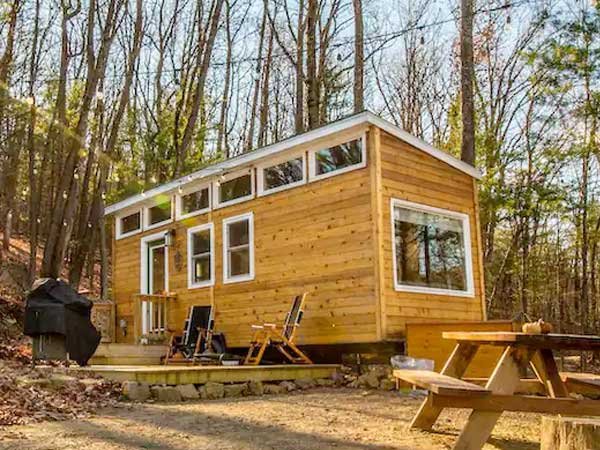
Exceptions and Variations
Accessory dwelling units (ADUs)
While tiny homes are typically thought of as standalone dwellings, West Virginia allows for the creation of accessory dwelling units (ADUs) on residential properties. ADUs are smaller secondary units that are built on the same lot as an existing primary residence. They can be used as a space for family members, rental units, or as an office or studio. The specific regulations for ADUs may vary across different jurisdictions within West Virginia, so it is important to consult with local authorities to understand the requirements and limitations.
Campgrounds and RV parks
Another option for tiny home living in West Virginia is to reside in campgrounds or RV parks. These recreational facilities often provide spaces for individuals to park and live in their tiny homes on a temporary or long-term basis. While this may offer a more flexible and transient lifestyle, it is essential to confirm that the chosen campground or RV park allows tiny homes and complies with the necessary regulations.
Community land trusts
Community land trusts are nonprofit organizations that own and manage land for the purpose of creating affordable housing. In West Virginia, some community land trusts have embraced the concept of tiny homes as a solution to housing affordability. These land trusts may offer opportunities for individuals to purchase or lease land specifically designated for tiny homes. By partnering with a community land trust, individuals can navigate the legal processes and enjoy the benefits of living in a tiny home.
Challenges and Limitations
Land availability
Finding suitable land for a tiny home can be a challenge in West Virginia. The availability of land suitable for tiny homes may be limited, especially in densely populated areas or areas with strict zoning regulations. It is crucial to conduct thorough research and explore options such as community land trusts or existing tiny home communities that can provide land for prospective tiny home owners.
Infrastructure requirements
Tiny homes require access to basic services such as water, electricity, and sewage. In some areas of West Virginia, obtaining access to these essential services may pose challenges, particularly in rural or remote regions. It is important to consider the infrastructure requirements of a tiny home and ensure that the chosen location can provide the necessary utilities.
Homeowner association rules
If opting to live in a planned community or subdivision with a homeowner association (HOA), it is important to review the HOA rules and regulations. Some HOAs may have specific restrictions on the type of homes allowed, including size requirements or architectural guidelines. Ensuring that a tiny home can comply with the HOA rules is crucial to avoid conflicts or legal issues down the line.
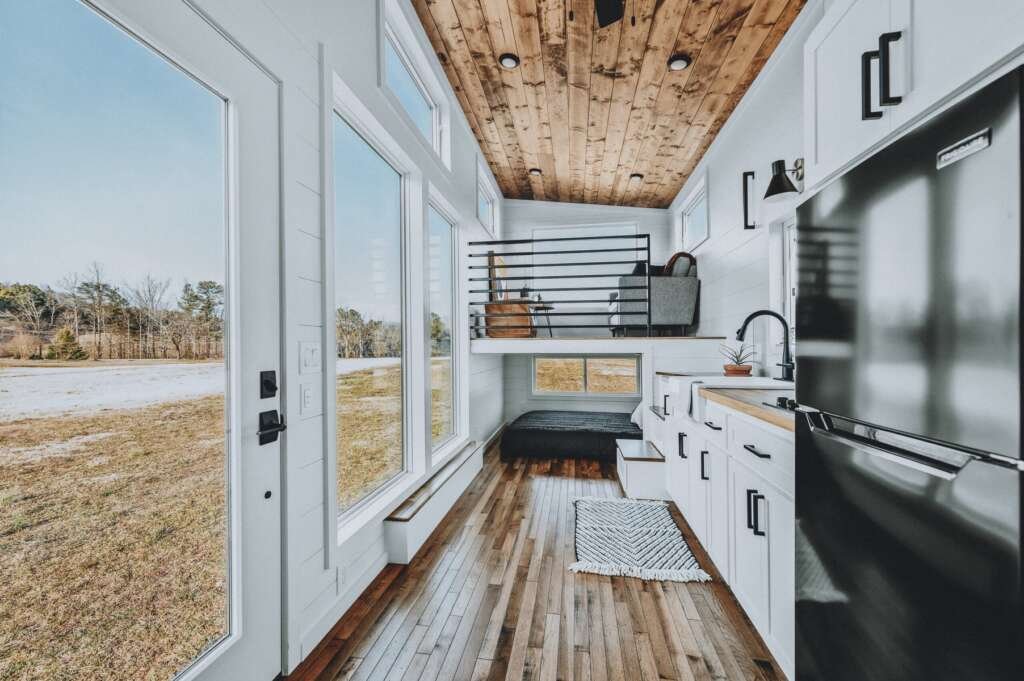
Legalization Efforts
Advocacy groups and organizations
Several advocacy groups and organizations are actively working towards the legalization and acceptance of tiny homes in West Virginia. These groups raise awareness about the benefits of tiny homes, educate policymakers and the public, and advocate for changes in zoning and building codes to accommodate tiny homes. By joining or supporting these organizations, individuals can contribute to the efforts to legalize tiny homes and create more housing options.
Proposal for legislation
In West Virginia, there have been proposals for legislation to address the legal status of tiny homes. These proposals aim to establish specific regulations and guidelines for the construction and placement of tiny homes, providing clarity and certainty for prospective tiny home owners. Engaging with local policymakers and supporting these proposals can contribute to the legalization of tiny homes in West Virginia.
Local government initiatives
Some local governments in West Virginia have taken proactive steps to accommodate tiny homes within their jurisdictions. They have recognized the benefits of tiny homes, such as affordable housing options and sustainable living, and have implemented zoning changes or pilot programs to encourage the development of tiny home communities. Staying informed about local government initiatives and participating in public consultations can help shape the future of tiny home legalization in West Virginia.
Case Studies
Successful tiny home communities in West Virginia
West Virginia has seen the emergence of successful tiny home communities that provide affordable and sustainable housing options. One example is the Stone Ridge Village Tiny Home Community, located in Berkeley County. This community offers a supportive and inclusive environment for tiny home residents, fostering a sense of community and shared resources.
Individual experiences of tiny home owners
Numerous individuals and families have embraced tiny home living in West Virginia and have shared their positive experiences. These individuals cite the financial freedom, reduced environmental impact, and sense of community as reasons for choosing tiny homes. Their stories and testimonials serve as inspiration for others considering the tiny home lifestyle.
Impact on local economy
The presence of tiny home communities can have a positive impact on the local economy in West Virginia. These communities can attract tourists, provide opportunities for local businesses, and contribute to job creation. The construction and maintenance of tiny homes also stimulate the local construction industry, creating a ripple effect of economic growth.
Financing and Insurance
Finding financing options
Securing financing for a tiny home in West Virginia can be challenging, as traditional mortgage lenders may be hesitant to provide loans for non-traditional housing. However, there are alternative financing options available, such as personal loans, specialized lenders, or crowdfunding. Working with a lender experienced in tiny home financing can help navigate the process and find suitable options.
Insurance coverage for tiny homes
Obtaining insurance coverage for a tiny home is an important step in protecting the investment. While traditional homeowners insurance may not be designed for tiny homes, there are specialized insurance providers that offer coverage tailored to the needs of tiny home owners. It is crucial to research and compare insurance options to find a policy that provides adequate coverage and protection.
Appraisal and resale value
Determining the value of a tiny home can be complex, as traditional appraisal methods may not be applicable. Appraisers with experience in valuing tiny homes can provide an accurate assessment of the property’s worth. It is also important to consider the potential resale value of a tiny home, as certain design features, location, and market demand can influence its marketability.
Environmental Considerations
Sustainability features of tiny homes
Tiny homes are known for their sustainability features, as they are designed to maximize energy efficiency and reduce waste. Many tiny homes incorporate features such as solar panels, rainwater harvesting systems, and composting toilets. These sustainable elements not only help protect the environment but also contribute to cost savings in terms of utility bills.
Reduced carbon footprint
The compact size and reduced energy consumption of tiny homes result in a smaller carbon footprint compared to traditional homes. The reduced use of materials during construction and the emphasis on energy efficiency contribute to a more environmentally friendly lifestyle. By choosing to live in a tiny home, residents can actively reduce their carbon emissions and play a role in combating climate change.
Alternative energy sources
Tiny homes offer the opportunity to explore alternative energy sources, such as solar power or wind turbines. Many tiny home owners embrace renewable energy systems to power their homes, further reducing their dependence on traditional grid electricity. This not only reduces their ecological impact but also provides a level of self-sufficiency in terms of energy consumption.
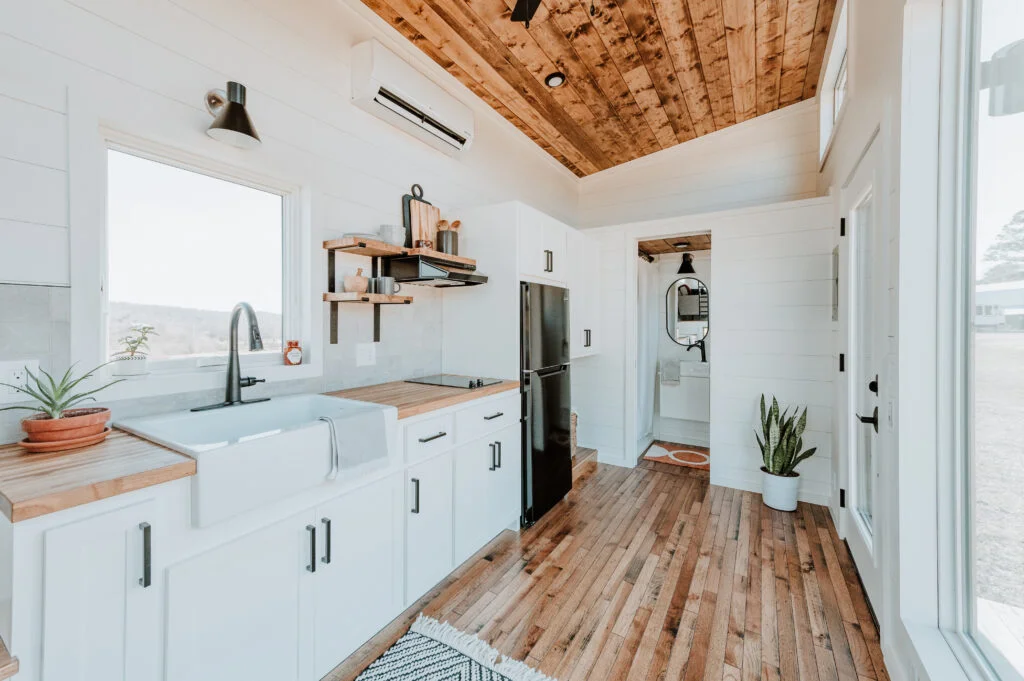
Social and Cultural Impacts
Sense of community in tiny home living
One of the key attractions of tiny homes is the strong sense of community that often develops within tiny home communities. Residents tend to bond over shared values and a desire for a simpler, more sustainable lifestyle. This sense of community fosters social connections, support networks, and a collective responsibility for the well-being of the community members.
Simplifying lifestyle and reducing materialism
Tiny homes promote a minimalist lifestyle by encouraging individuals to downsize their possessions and prioritize experiences over material possessions. This shift away from consumerism and excess can lead to reduced stress, enhanced well-being, and a greater focus on personal relationships and personal growth.
Economic affordability and social inclusivity
Tiny homes offer an affordable housing option for individuals and families who may otherwise struggle to afford traditional homes. By reducing the financial burden of housing, tiny homes promote social inclusivity and provide opportunities for individuals from diverse backgrounds to access safe and comfortable housing. This affordability can also enable individuals to allocate their resources towards other aspects of their lives, such as education, travel, or entrepreneurship.
Conclusion
In summary, while specific regulations and legalities surrounding tiny homes in West Virginia are still evolving, the increasing popularity and positive social and environmental impacts are paving the way for their acceptance. Understanding zoning regulations, building codes, and permit requirements is crucial for anyone interested in building or living in a tiny home in West Virginia. However, West Virginia has witnessed the growth of successful tiny home communities, the advocacy efforts of organizations, and the recognition by local governments, indicating a promising future for tiny home legalization in the state. With ongoing organizing, legislative proposals, and community support, the legalization and acceptance of tiny homes in West Virginia will continue to progress, opening doors to affordable, sustainable, and inclusive housing options.

